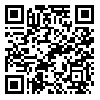Volume 26, Issue 94 (summer 2021)
__Judicial Law Views __2012__, 26(__59__): __224249 |
Back to browse issues page
Download citation:
BibTeX | RIS | EndNote | Medlars | ProCite | Reference Manager | RefWorks
Send citation to:



BibTeX | RIS | EndNote | Medlars | ProCite | Reference Manager | RefWorks
Send citation to:
moazenzadegan H A, Molabeigi A. Legal-jurisprudential review of remote testimony by looking at the views of criminal judges in a Tehran province. دیدگاههای حقوقی 2021; 26 (94) :223-249
URL: http://jlviews2.ujsas.ac.ir/article-1-1917-en.html
URL: http://jlviews2.ujsas.ac.ir/article-1-1917-en.html
1- Allameh Tabatabai University , moazenzadegan@gmail.com
2- Allameh Tabatabai University
2- Allameh Tabatabai University
Abstract: (1901 Views)
In the present age, the emergence of means of communication between individuals and organizations through electronic and informational equipment has raised the issue of e-government and, consequently, electronic litigation as opposed to traditional litigation. Electronic criminal proceedings, as a new development in the judicial system, in order to achieve social distance in incidents such as Crohnchr('39')s disease, reducing court costs and facilitating court proceedings, are significant articles of the Code of Criminal Procedure. One of the important issues in this field is remote testimony due to electronic and informatics equipment, which is mentioned in Article 186 of the Islamic Penal Code and Articles 204 and 214 of the Code of Criminal Procedure. However, according to an interview with a number of branches of the First Criminal Court, the issue of long-distance testimony has not yet been brought to justice in Iran. These courts have challenges in terms of lack of necessary infrastructure and views derived from jurisprudential interpretations. In the present study, with descriptive-analytical method and also the content analysis of the judgeschr('39') interviews, solutions have been presented to solve these challenges and provide the necessary infrastructure for the implementation of remote testimony.
Keywords: distance witness, Method-based distance witness, Subject- oriented distance witness, Verification of the attribution of testimony, Impossibility of testimony, Jurisprudential and Judicial approach to distance witness
Type of Study: Applicable Research |
Subject:
Criminal Law
Received: 2020/07/19 | Revised: 2022/12/26 | Accepted: 2021/09/12 | Published: 2021/10/20 | ePublished: 2021/10/20
Received: 2020/07/19 | Revised: 2022/12/26 | Accepted: 2021/09/12 | Published: 2021/10/20 | ePublished: 2021/10/20
Send email to the article author
| Rights and permissions | |
 |
This work is licensed under a Creative Commons Attribution-NonCommercial 4.0 International License. |

